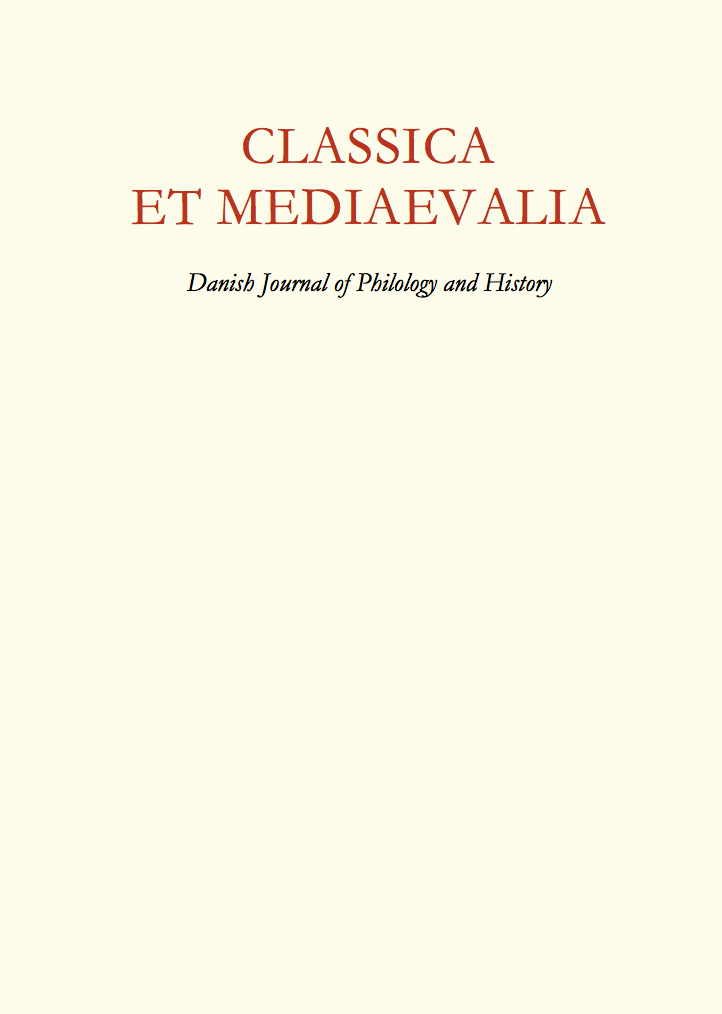Who Were The Five Thousand?
DOI:
https://doi.org/10.7146/classicaetmediaevalia.v72i.142656Abstract
This paper focuses on who the “Five Thousand” might have been in the oligarchic
revolution of the Four Hundred in 411 BC and in the political regime of the Five
Thousand four months later. In both cases, the “Five Thousand” were nominal groups.
During the despotic rule of the Four Hundred, it seems that they never existed at all and
that the figure corresponded to those “most able to serve the state in person and in
purse” ([Arist.] Ath. Pol. 29.5; Thuc. 8.65.3). Namely, those paying the eisphora who, during
the first part of the Peloponnesian War, might have numbered c. 5000. During the Archidamian
War, this internal tax was first exacted in 428 BC, as was perhaps also the case
of the Sicilian Expedition. In the politeia of the Five Thousand, this figure referred to
those who “ta hopla parechomenoi” (in [Arist.] Ath. Pol. 33 and Thuc. 8.97.1), whose composition
and number can be surmised, to some extent, from the spurious “Draconian
constitution” emanating from the reflection on the patrios politeia at the time (which
included the revision of the laws of Cleisthenes: [Arist.] Ath. Pol. 29.3).
Downloads
Published
How to Cite
Issue
Section
License
Copyright (c) 2023 Miriam Valdés Guía

This work is licensed under a Creative Commons Attribution 3.0 Unported License.
Authors who publish with this journal agree to the following terms:
- Authors retain copyright and grant the journal right of first publication with the work simultaneously licensed under a Creative Commons Attribution License that allows others to share the work with an acknowledgement of the work's authorship and initial publication in this journal.
- Authors are able to enter into separate, additional contractual arrangements for the non-exclusive distribution of the journal's published version of the work (e.g., post it to an institutional repository or publish it in a book), with an acknowledgement of its initial publication in this journal.
- Authors are permitted and encouraged to post their work online (e.g., in institutional repositories or on their website) prior to and during the submission process, as it can lead to productive exchanges, as well as earlier and greater citation of published work (see The Effect of Open Access).





